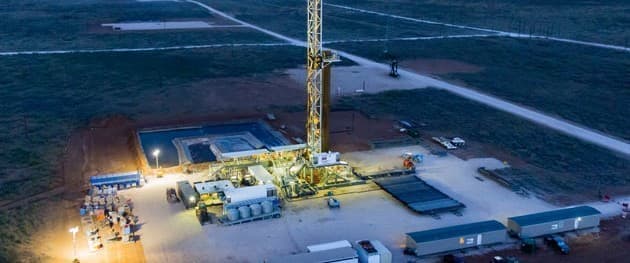Conventional wisdom dictates that water and oil do not mix--at least for those of us who are not MIT engineers. But a new discovery could soon turn that clichéd expression on its head and give oil producers something to cheer about.
Scientists at Rice University’s Brown School of Engineering have successfully demonstrated that microscopic saltwater droplets can emulsify crude oil when done in the right proportions and conditions, something that could have huge ramifications for the shale industry.
Understanding how the two seemingly immiscible liquids combine could lead to cheaper enhanced oil recovery (EOR) compared to currently used chemicals and methods is the key here.
Chemical and biological engineer Sibani Lisa Biswal and her colleagues have put their time into trying to characterize various rock, water, and crude types to determine what works and what does not.
It turns out the magical ‘smart water’ that could revolutionize the shale industry is cheap and plentiful seawater.
More Productive Wells
Biswal and her team confirmed that oil wells are more productive when the right salt concentration is carefully matched to both the crude oil and the rock, sandstone or carbonate formation.
If you get the three components right, the low-salinity brine is able to create emulsion droplets in the crude oil and also improve the wettability of the rock formation. Rock wettability determines how easily it will release its oil treasures.
The scientists’ smoking gun came from offshore wells in the North Sea.
Oil companies there discovered that oil recovery was surprisingly good when they injected seawater, which naturally has low salinity. However, research on the subject has been limited because, as Co-lead author Jin Song has revealed, researchers tend to focus on the effects of brine and ignore those of oil when looking into the effects of low-salinity water.
Not all brines will work, though. Related: Oil Plunges As Saudis Boost Exports To Record High
In a test involving two brines--one with a quarter of the salinity of seawater and another with high-salinity--on Indiana limestone cores against six crude oils from the Middle East, Gulf of Mexico and Southeast Asia as well as a seventh sample with added asphaltene, the scientists found that low-salinity enhanced water droplets emulsifying in crude while high-salinity brine actively inhibited the process.
The implications could be huge for the industry.
The industry standard usually involves using surfactants--aka soap--to loosen oil in a reservoir. But these chemicals can be prohibitively expensive--so much so that drillers will usually prefer to abandon wells when the easily recoverable oil runs out. Unfortunately, doing this can mean leaving as much as 75% of the available oil in the ground.
Thankfully, the new findings suggest that by just changing the salt concentration to modify the composition of the brine, you can enjoy the same benefits as using expensive detergents.
Related: Giant LNG Projects Face Coronavirus Death Or Delay
Brine: The Real Deal
In recent years, brine has become the go-to fluid for shale drillers with the new discovery set to add to its growing credentials.
While oil- and water--based drilling fluids are effective, they are controversial due to concerns about environmental degradation. Brine, on the other hand, provides manifold benefits including being more environmentally friendly, less corrosive to drilling tools and offers excellent penetration rates in varying rock formations. For instance, water-based muds are likely to cause clay swelling while brine-based ones reduce the chances of this happening. Formate brines--a type of brine commonly used in shale drilling--has excellent properties that make it ideal for horizontal drilling including superior ability to stabilize shale and protect polymers at high temperatures; high lubricity, non-toxic and readily biodegradable.
With oil prices so low, every dollar saved can mean the difference between living to see another oil boom or going under. With an ominous prediction by Oilprice.com’s Nick Cunningham that the oil price collapse could bankrupt 50% of U.S. shale producers, Biswal and Co. might soon have their hands full.
By Alex Kimani for Oilprice.com
More Top Reads From Oilprice.com:
- April Could Be Worst Month Ever For Oil
- Russia Sees Oil & Gas Income Fall By Almost $40 Billion
- Russia Needs Higher Oil Prices, But Won't Surrender


















